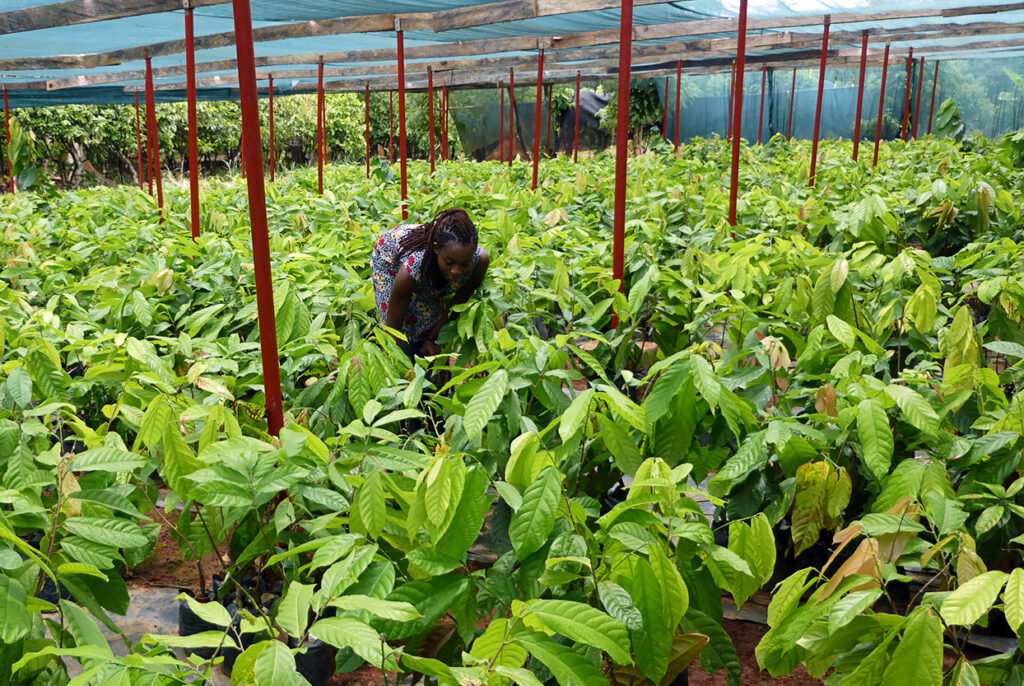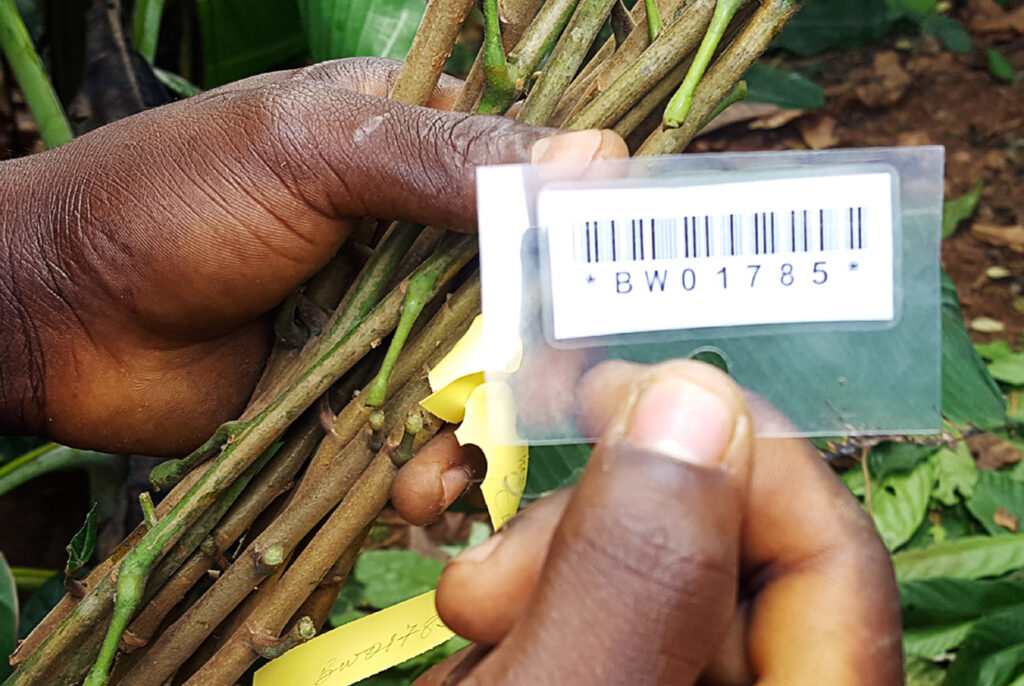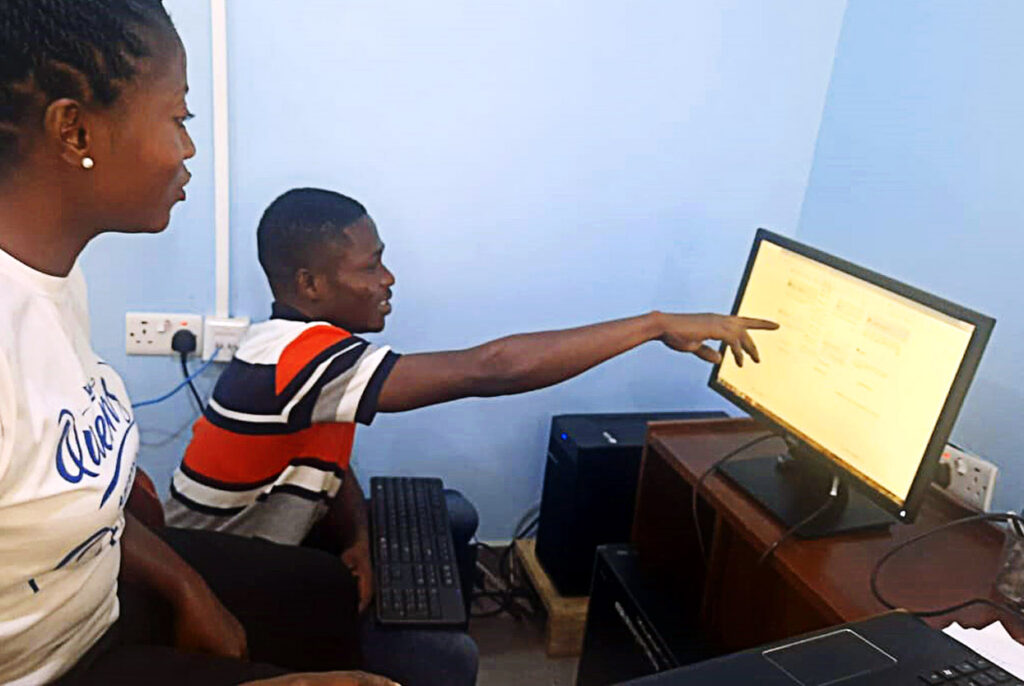Breeding and research programmes can evaluate a wide range of traits for a huge number of plants, often over many generations, which can create a vast amount of data. There are many stages at which errors can occur and detecting these in such datasets is difficult and very time consuming, and any mistakes that are found are usually impossible to correct after the event.
The use of Android devices, with the necessary options for data entry and error checking, can help minimise errors at the point of origin and improve the overall efficiency of data collection.
Watch the YouTube video to find out more about the data capture system developed for the Mabang Megakarya Selection Programme (MMSP).
This is the presentation given to the CRC Annual Research and Development Symposium 2023 (CARDS23).
We have been supporting the use of Android devices to collect a broad range of data types on several projects, including the Mabang Megakarya Selection Programme (MMSP), which is a large-scale cocoa breeding programme in Ghana.

At MMSP, mobile phones are being used to record trials data and track planting material through the nursery, with barcode/QR code labels used to identify plants and samples. The system at MMSP allows multiple devices at different locations to be kept updated, while providing a single point of entry to the data through a local server, but without requiring internet access when collecting data in the field.

Forms are designed to be simple to use and can accept a range of inputs, including text, barcodes/QR codes, numbers, and single/multiple select options. In addition, forms can be generated dynamically, meaning that previously entered data is used to determine the input options that follow; for example, if a plant is recorded as dead, the user won’t be asked about pod numbers. A range of data checks can be incorporated into the forms and utilised at the point of data entry, including the ability to compare values with data previously collected.

There are several advantages to identifying individual plants in the field/glasshouse using barcode/QR code labels since they allow information to be scanned directly into a device (via the camera or dedicated scanner), removing the errors associated with writing out names and codes. However, wherever possible, the barcode is generated from the field location, meaning that the information can be entered manually if a label is missing.

Although some of our other projects use dedicated label printers, which have the option to include barcodes/QR codes in the printer software, the system at MMSP creates sheets of labels with barcodes and/or QR codes that can be printed on any A4 laser printer and laminated. This approach means that the consumables required can all be sourced locally.

The combination of mobile phones and barcode labels is used through all the stages of generating plant material and planting it in the field, making it possible to trace the pedigree of each individual plant and identify every descendant arising from a propagation error. A nursery inventory keeps track of the number and nursery location of plants available for new trials.

Data are imported directly into a database, eliminating the errors associated with transcribing names, codes and field measurements, as well as saving time and labour. The system has a browser-based interface for a simple and familiar user experience. It incorporates error checks at various stages and can summarise data as required, with information from whole trials down to individual trees available to view or export for analysis.
For further information, contact:
Dr Chris Turnbull
c.j.turnbull@reading.ac.uk
MMSP is funded by the Ghana Cocoa Growing Research Association (GCGRA) Ltd. – supporting an industry-managed research programme thanks to an investment originally donated by the Cadbury family.
